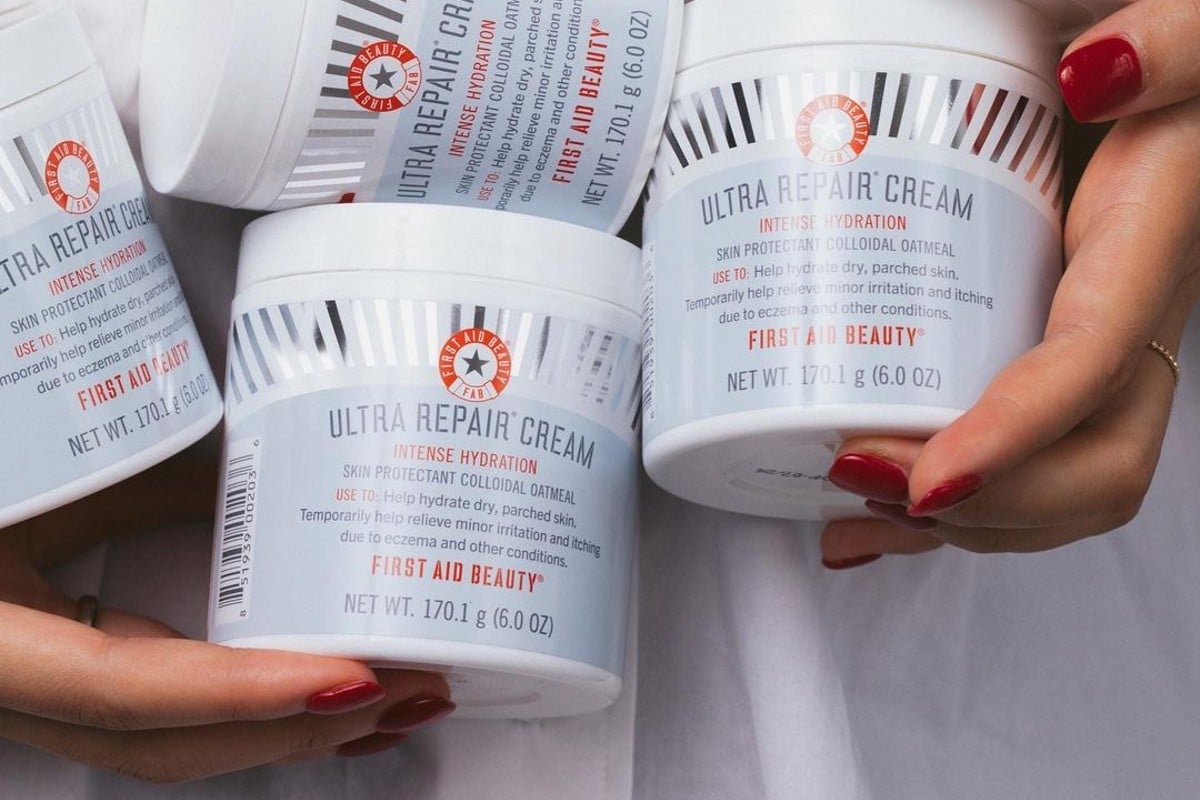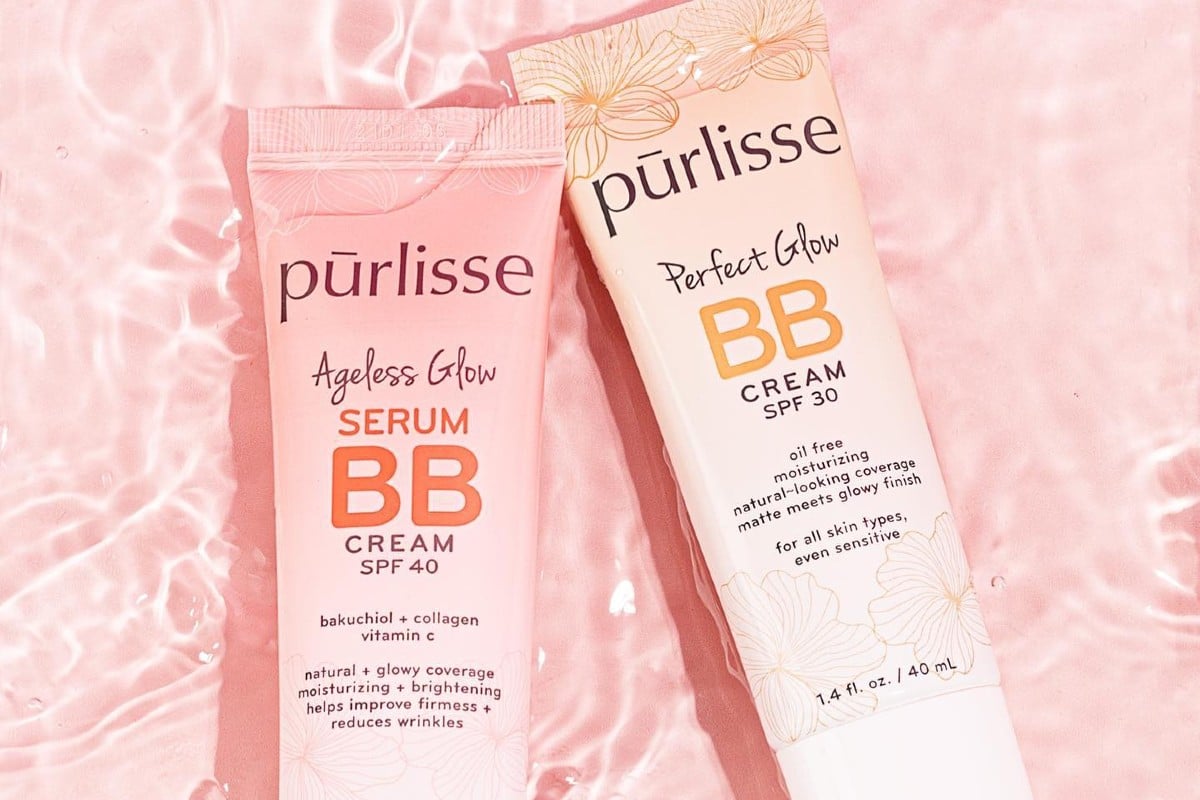Ever feel like your skin is constantly on edge, getting red and itchy, or breaking out after certain activities like exfoliating? It’s likely you have sensitive skin. Caring for sensitive skin is all about finding the right products that work for your skin’s needs and avoiding products that irritate it. While there’s no magic cure to make your sensitive skin completely irritation-proof, you can work towards making it stronger.
Below, I’ll break down everything you need to know about sensitive skin, share some dermatologist-recommended products for sensitive skin, and create a personalized skincare routine to manage sensitive skin.
What is sensitive skin?
Sensitive skin describes skin that is easily irritated by external factors and more prone to reactions such as redness and swelling than normal skin. One study defines sensitive skin as an “unpleasant sensory response to stimuli that should not provoke such sensations.”[1] These sensations are consistently present and include itching, burning, stinging, tightness, and dryness. And contrary to popular belief, sensitive skin is not a specific type of skin but rather a long-term condition that anyone can have at some point. People with oily, dry, or combination skin can still have sensitive skin.
Genetically inherited sensitive skin tends to be more delicate, with less pigment and natural fats, a thinner outer layer, more sensitive nerves, and blood vessels close to the skin’s surface, which can make it easily irritated and affected by external damage.
These are the signs you have sensitive skin:
- Persistent redness
- Itching and burning sensation
- Rashes
- Dry or oily patches
- Discomfort when rubbing the skin
- Low tolerance to skincare products
What causes sensitive skin?
A weak epidermal barrier is often the root cause of sensitive skin. When the skin lacks the necessary fats for protection, it becomes more prone to external damage such as UV radiation, chemicals, bacteria, and pollution. Other underlying conditions, such as dermatitis, rosacea, and acne, can make your skin hypersensitive. Some people also have sessional sensitivities in winter due to unfavorable weather conditions.
The common triggers of sensitive skin include:
- Sun exposure, winds, cold, pollution, heat, and bacteria.
- Topical products with ingredients like retinol, alpha-hydroxy acids, propylene glycol, drying alcohol, and synthetic fragrances.
- Excessive exfoliation
- Conditions such as dermatitis and acne.
- Inflammations.
Sensitive vs. sensitized skin
If your skin suddenly becomes sensitive, it doesn’t necessarily mean you have sensitive skin but rather sensitized skin.
Although both have the same symptoms, they are different. Sensitive skin is caused by poor barrier function, while sensitized skin is a temporary condition caused by a response to certain irritants. You can treat sensitized skin by eliminating the triggering factors that cause it. On the other hand, you can’t treat sensitive skin because it’s genetically programmed.
What to avoid if you have sensitive skin
- Avoid products with fragrances or alcohol because both are skin irritants.
- Avoid cleansers with sulfates, detergents, and astringents.
- Avoid products with high concentrations of retinoids and chemical exfoliants.
- Avoid using scrubs on your face.
- Avoid comedogenic ingredients if you have oily and acne-prone skin because they can clog the pores and inflame the skin.
- Avoid prolonged sun exposure and long hot baths.
- Avoid over-cleansing your skin.
Factors like over-cleansing, alcohol, pollution, harsh chemicals, pure vitamin C, and certain medications can unbalance the skin’s pH, weakening this protective layer and leading to inflammation and sensitivity.[2]
Skincare routine for sensitive skin
#1 Cleanse with a mild face wash
If your skin feels tight and dry after washing your face, you know you’re using the wrong cleanser. If you have sensitive skin, look out for cleaners that are gentle and sulfate-free. Look out for face washes with mild surfactants and moisturizing ingredients like glycerin, hyaluronic acid, and ceramides. Also, a good cleanser for sensitive skin should have a pH closer to the skin’s pH, aka around 5-6. To stay on the safe side, use a hypoallergenic cleanser that is made for sensitive skin.
La Roche-Posay Toleriane Hydrating Gentle Face Cleanser, Aveeno Calm + Restore Nourishing Oat Cleanser, and Elemis Sensitive Cleansing Wash are some of our favorite cleansers for sensitive skin.
#2 Follow with a pH-balancing toner
A pH-balancing toner restores and maintains the natural pH level of your skin, which is crucial for a healthy acid mantle—your skin’s first line of defense against bacteria and environmental pollutants.
We recommend CeraVe Hydrating Toner, I’m From Rice Toner, and Eminence Chamomile Tonique for sensitive skin.
#3 Apply a serum for sensitive skin
For daytime, we recommend a moisturizing serum with hyaluronic acid if you’re dealing with dry patches, or an antioxidant-rich serum with vitamin C if you’ll be spending a lot of time in the sun. Ideally, a serum for sensitive skin should be hypoallergenic and free from common irritants like alcohol, fragrances, and harsh chemicals. For nighttime, use a serum with Centella asiatica or ceramides to strengthen your skin’s barrier.
Remember to patch-test a new serum before applying it to your entire face to ensure it doesn’t trigger a reaction and your skin can tolerate it.
Beauty of Joseon Calming Serum, Clinical Skin Vitamin C Pro-Collagen Serum, and Drunk Elephant B-Hydra Intensive Hydration Serum are some of the best serums to soothe and calm sensitive skin.
#4 Moisturize
A hypoallergenic moisturizer that hydrates and replenishes the skin’s barrier is ideal for sensitive skin. Consider something made with barrier-strengthening ingredients like ceramides, cholesterol, and fatty acids. Squalane and shea butter also work to manage sensitive skin because they seal hydration and soothe irritation. To stay on the safe side, avoid moisturizers with a never-ending list of ingredients. Steer clear of artificial fragrances, dyes, drying alcohol, and synthetic preservatives.
We recommend SkinCeuticals Triple Lipid Restore 2:4:2 and Avène Tolerance Control Soothing Skin Recovery Cream.
#5 Sunscreen
Because your skin is sensitive, you should avoid chemical sunscreens—like the ones with octinoxate, oxybenzone, and avobenzone—because they can trigger reactions and allergies. Instead, use a mineral sunscreen with zinc oxide and titanium dioxide because, unlike chemical filters, they stay on the skin’s surface without being absorbed into the body. Ensure your sunscreen provides broad-spectrum protection and has at least 30 SPF.
You can try Neutrogena Sensitive Skin Mineral Sunscreen SPF 60, Isdin Eryfotona Actinica Sunscreen Broad Spectrum SPF 50, and Colorescience Brush-On Sunscreen Mineral Powder SPF 50.
#6 Use a gentle exfoliator once weekly
Yes, even sensitive skin needs to exfoliate, but the key is to do it gently and less often. If you don’t know how to exfoliate sensitive skin, here’s the gist: Avoid harsh abrasive scrubs. Instead, use gentle exfoliators, like fruit enzymes or lactic acid. These work by eliminating dead cells from the skin’s surface rather than aggressively penetrating the skin layers. This makes them a softer, safer option. Polyhydroxy acids, such as gluconolactone, also work well on sensitive skin thanks to their gentle exfoliating action.
Bliss Jelly Glow Peel Gentle Fruit Enzyme Exfoliator, The Ordinary 10% Lactic Acid, and Neogen Bio-Peel Gentle Gauze Peeling Wine will gently exfoliate your sensitive skin without causing irritation.
Bottom line
Dealing with sensitive skin can be a bit of a challenge, but the right routine can make a world of difference. Start by figuring out what sets off your skin’s sensitivity and steer clear of those triggers. When choosing skincare products, avoid anything harsh or scented and look for products that are hypoallergenic, non-comedogenic, and formulated for sensitive or problematic skin. These products should focus on rebuilding the skin’s barrier, which is often at the root of increased sensitivity. Don’t forget to moisturize daily and apply sunscreen to protect your skin.
Read next: Learn How To Use Retinol On Sensitive Skin





